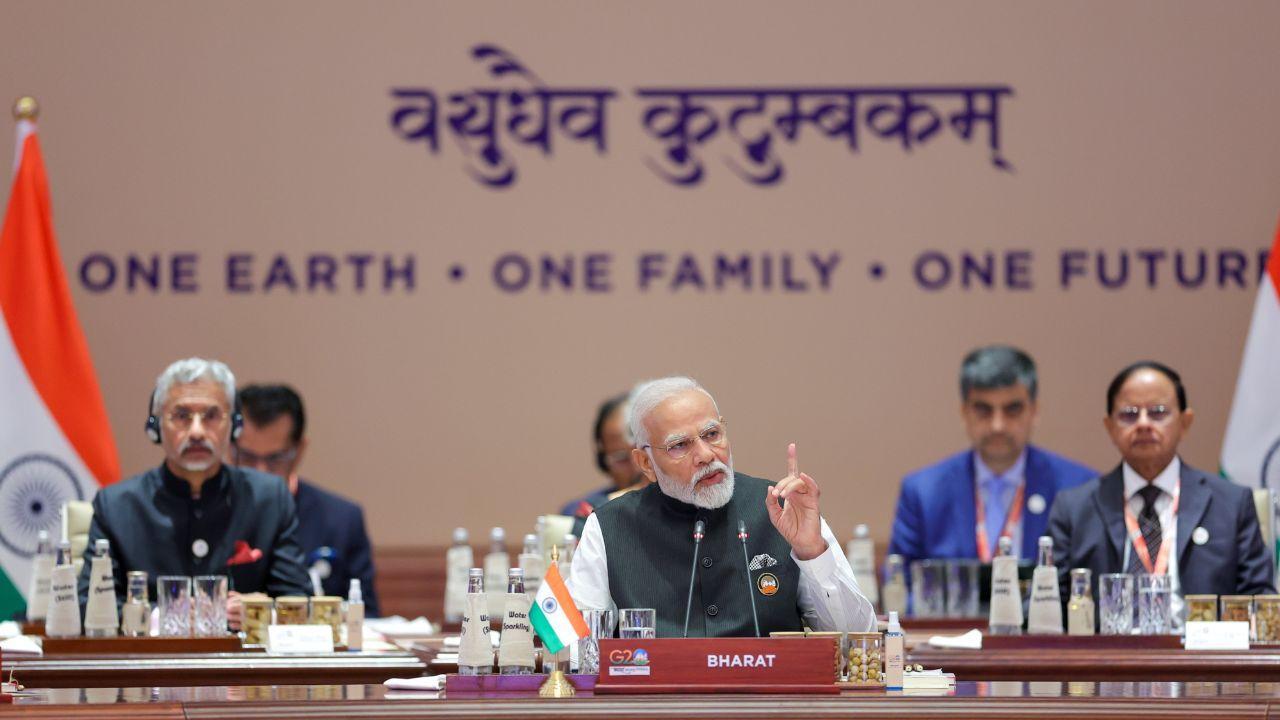White House Deputy National Security Advisor Jon Finer said an eagerly awaited memorandum of understanding (MoU) about this transformative initiative is set to be unveiled during a dedicated meeting focusing on global infrastructure within the G20 Summit

PM Modi speaking at G20 Summit/ Pic/X
On the sidelines of the ongoing G20 Summit in New Delhi, the United States, India, Saudi Arabia, the United Arab Emirates (UAE), the European Union, and other G20 partners are poised to announce a far-reaching shipping and rail transportation corridor, stated a report in news agency ANI. This corridor will interconnect countries spanning the Middle East, South Asia, and Europe, with the primary aim of facilitating the seamless flow of commerce, energy, and data from India across the Middle East to Europe.
ADVERTISEMENT
According to the ANI report, White House Deputy National Security Advisor Jon Finer said an eagerly awaited memorandum of understanding (MoU) about this transformative initiative is set to be unveiled during a dedicated meeting focusing on global infrastructure within the G20 Summit. Leaders attending this summit will deliberate on a range of pressing global issues, including the state of the global economy and challenges within the global supply chain.
This forthcoming agreement is poised to represent a significant development in the realm of supply chains, offering a promising alternative in the context of an evolving post-pandemic global order, the report read.
Finer elaborated on the far-reaching implications of this initiative, emphasizing that it encompasses not merely railway infrastructure but also shipping capabilities. He underscored the project's comprehensive and groundbreaking nature, asserting, "It is not just the Railway project, it is a shipping and Railway project, and it is important for people to understand how expansive, ambitious, and ground-breaking this will be."
Characterising the project as "affirmative positive," Finer stressed its commitment to serving underserved regions. He emphasized that this initiative would be particularly advantageous for countries lacking robust infrastructure and underlined that it doesn't require nations to make zero-sum choices. In comparison to other less ambitious efforts, Finer expressed confidence in the transparent and non-coercive nature of this project.
The infrastructure deal is anticipated to establish railway networks connecting Middle Eastern countries. These networks will also extend to India through shipping lanes originating from ports in the Middle East. The project's potential to transform trade and connectivity in the region is substantial and reflects a collaborative effort to boost commerce, energy flow, and data exchange across continents.
 Subscribe today by clicking the link and stay updated with the latest news!" Click here!
Subscribe today by clicking the link and stay updated with the latest news!" Click here!







